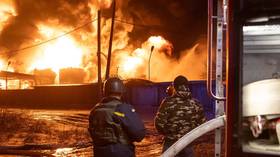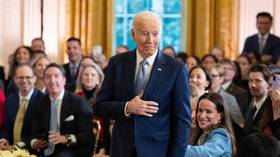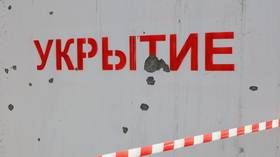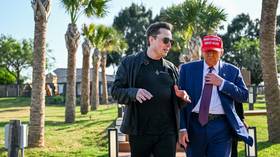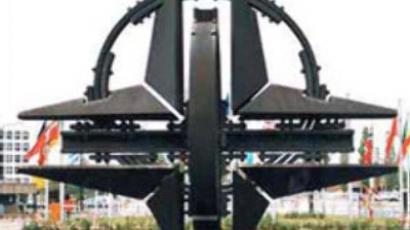To join or not to join?
The current US administration has strongly supported NATO membership for the two former countries but the issue has caused debate within the organisation with other members not so keen on the idea.
In Ukraine opinion polls suggest that 60 per cent of population are against joining NATO, despite which the country's leadership is strongly promoting membership.
“Politicians use the foreign relations factor for their electorate and the issue of ties with Russia is used here as well. That’s why people rely on emotions. In the west of the country they support the idea simply because in the east they don’t,” says political analyst Vitaly Bala.
“However, in both parts of Ukraine hardly one out of 100 would be able to explain what NATO is,” he adds.
The issue has been a source of considerable tension with Moscow.
Kiev received affirmations from the alliance that Ukraine, along with Georgia, would receive membership action plans by the end of 2008.
Recently, however, their hopes suffered a blow after the US, which had been actively supporting their candidacy, toned down its support. In one of her latest statements US Secretary of State Condoleezza Rice stressed ‘there is a long road ahead’ before Georgia and Ukraine reach NATO standards.
Russian President Dmitry Medvedev welcomed the apparent change of heart, saying reason has prevailed.
However, in Kiev it has caused dismay. Statements from Condoleezza Rice made some political commentators in Ukraine believe progress towards joining NATO had reached a dead end. However, those responsible for completing this mission say it is too early to give up.
Vadim Pristayko from the Foreign Ministry believes that Rice’s words are just diplomatic platitudes for some other member states.
“I believe it was done deliberately to show that it’s not only a US decision. It’s a consensus-based organisation and it’s not about the U.S. to press anybody including those who don’t even have an army. It’s not a dead end, it may be postponed until the next assessment, but it’s not a dead end,” says Pristayko.
For the time being, given the strong opposition to the initiative from several NATO members and Russia, as well as the changing format of the organisation itself, hardly anyone in Kiev can say when, if ever, that might happen.


